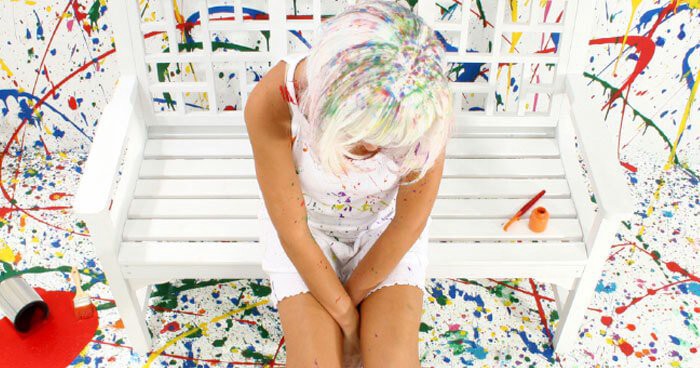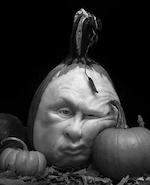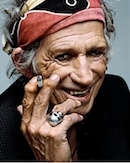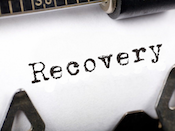
Depression and creativity are almost collocated words
Creativity has often been linked to depression or mood disorders. When I wrote a short post some time ago about Depression and Writing, I didn’t give much thought to the connection, as I was simply voicing in a light-hearted way, an episode from my own experience.
However, due to the number of times that short piece has been read, I decided to look a little deeper into the connection between depression and creativity.
My first stop was an article from CNN – The dark side of creativity: Depression + anxiety x madness = genius? One small quote from the article caught my attention.
Using a registry of psychiatric patients, they tracked nearly 1.2 million Swedes and their relatives. The patients demonstrated conditions ranging from schizophrenia and depression to ADHD and anxiety syndromes. They found that people working in creative fields, including dancers, photographers and authors, were 8% more likely to live with bipolar disorder. Writers were a staggering 121% more likely to suffer from the condition, and nearly 50% more likely to commit suicide than the general population.
 Boy, that makes it sound as if writing is one creative pursuit to avoid at all costs!
Boy, that makes it sound as if writing is one creative pursuit to avoid at all costs!
From a more reasoned perspective, I read an article by Rob Blair on the Creative Writing Guild, Why do creative people suffer from depression? He turns the connection between depression and creativity.
For all these explanations, I also sometimes think that the association between creativity and depression is reversed. Yes, some studies have shown that creativity and depression are linked, but correlation doesn’t equal causation. We know depression and creativity co-exist, but … well … it’s like this: If you have severe depression, you have to get pretty damn creative to survive it.
Maybe we become creative because we’re deeply unhappy and we need to see a better world than the one we’re forced to live in. Maybe our narratives break down and we have to become creative enough to forge new ones. Maybe we can’t stand the possibility of following the prescribed path that we’d be shuffled down if we focused in like we were told to.
From my perspective, I am not sure that there is a definitive connection between depression and creativity. Yes, there have been many well-known artists and creatives throughout history, who have been at one time or another afflicted with depression or mild mental disorders. However, there have been many, including one of my favourite poets, Henry Lawson, who were more likely to have simply been alcoholics or drug addicts.
 During the 60’s, illicit drugs were almost a creative necessity to so many of our rock ‘n roll hall of fame musicians and singers of the era. A lot of them perished to drug overdoses as a result of course, but only to become icons as a result. Jimi Hendrix, Janis Joplin, Jim Morrison and Keith Moon spring to mind. But then again, Keith Richards defied the order of becoming a rock icon, by surviving. However, none of all this LSD 60’s inspired creativity had anything to do with depression.
During the 60’s, illicit drugs were almost a creative necessity to so many of our rock ‘n roll hall of fame musicians and singers of the era. A lot of them perished to drug overdoses as a result of course, but only to become icons as a result. Jimi Hendrix, Janis Joplin, Jim Morrison and Keith Moon spring to mind. But then again, Keith Richards defied the order of becoming a rock icon, by surviving. However, none of all this LSD 60’s inspired creativity had anything to do with depression.
From another perspective, there is the possibility that during periods or illness, of any kind, finding ways to aid recovery can often lead to creative pursuits. If you are stuck at home with two broken legs and one broken arm, perhaps writing with your one good hand would be a helpful way to deal with the time on your hands – or hand, in this case.
Jennifer Haupt wrote an article some time ago about Channeling Depression Into a Powerful Tool for Creativity. Although the article deals with depression, I found this quote, which could be applied to any type of illness or injury that interrupted normal life patterns.
“Creative endeavors are intrinsically rewarding, and you get these little shots of dopamine in the rewards center of the brain,” says Shelley Carson, a professor at Harvard University and the author of Your Creative Brain: Seven Steps to Maximize Imagination, Productivity, and Innovation in Your Life. Dopamine is a mood-elevating neurotransmitter that is released with pleasurable experiences such as food, sex, and drugs—and creativity.
So is there a connection between depression and creativity?
To be honest, I don’t know. For those who have suffered from depression, they will know that it is not simply an illness that affects your mood, as most people are led to believe. The majority of symptoms of clinical depression are totally physical, which include exhaustion and fatigue, pain in the joints, back pain, headaches, digestive problems, insomnia and dizziness among others. When one suffers from all of these symptoms at the same time, is it any wonder one can feel a bit down in the dumps.
However, when one is suffering from so many symptoms and often struggling to obtain a clear diagnosis, having something to occupy your mind, and time, helps. In particular, if the symptoms are so severe that it means not being able to work.
 I think I tend to lean towards the explanation given by Shelley Carson. Doing anything creative when you are not feeling well is a positive step in recovering from almost any illness or injury. So no, I don’t think depression and creativity should be such overused collocated words.
I think I tend to lean towards the explanation given by Shelley Carson. Doing anything creative when you are not feeling well is a positive step in recovering from almost any illness or injury. So no, I don’t think depression and creativity should be such overused collocated words.
But perhaps, though, creativity and recovery should be.
Having recovered some time ago from a tough time in my life, I am now very well, very busy, and back to working full time. This, of course, limits my time to be creative. So hence I am writing this blog post, rather than a new novel. But yes, being creative through writing helped enormously during my recovery. It gave me a purpose. It could well have been painting or basket weaving, though. It was not the choice of creative pursuit that was important. It was the fact that creativity helped fill the void of not being productive while being unable to function or work normally.
So yes, there may well be a link between depression and creativity, but only in the sense that creativity can be a means to recovery – from any illness.

I know that being active when I get depressed helps me feel better. – and writing is what I like to do. Writing I hope will also keep Dr. Alzheimer at bay. What comes first the depression or the creativity?
I can’t answer you question, Henry. Because, well, I forgot what your question was! lol :))) Damn Alz!!
There is a school of thought that says we ALL have a shadow side that we try to sublimate or push down. It often comes up when we are our partying. Or if someone is attracted to children, they act on it when the urge becomes too strong.
I believe the original idea comes from Carl Jung, but Robert A Johnson writes about it in “Owning Your Own Shadow.” He says that we all need to find a creative way to let our dark side out. Otherwise, we will be either self-destructive OR destructive of others.
Even before reading Johnson’s book I had a sense of this idea. (Honestly, I don’t really understand Jung so I sat mutely through many conversations with grad students when I was younger.)
When I went to Iceland at around 25 years of age, I discovered a country where everyone is encouraged to express themselves creatively, whether it be dance, painting or photography. (I didn’t meet any writers, but I did visit a farm house that was filled with books!)
Later, I discovered the Popul Vu, which is the Mayan bible. The Mayans believed that we are all little creators. The Popul Vu was filled with little creators of art, whether it was clay dolls they made or paintings or houses. I was fascinated with this idea.
Later, I went to Agape in LA, the one with Michael Beckwith. I learned there that we could heal and in the process, make art that expressed that healing. Rev, Michael’s wife was the chorus director, as well as the musical director for the Agape International Spiritual Center and not only did the chorus travel the country (and sometimes the world), but Ricki Byers Beckwith brought musical groups to Agape every Sunday, often more than one.
The lesson I learned was “Don’t try to push down your “shadow side” or act it out by getting drunk and going home with a stranger.” “Instead use that dark side to make the world a better place through your art.”
These ideas may have saved my life!
Peace, love & Art,
Sherrie
Sherrie Miranda’s historically based, coming of age, Adventure novel “Secrets & Lies in El Salvador” is about an American girl in war-torn El Salvador:
http://tinyurl.com/klxbt4y
Her husband made a video for her novel. He wrote the song too:
https://www.youtube.com/embed/P11Ch5chkAc?
This is so good. You know I too have gone through some tough stuff in the past five years. Depression probably reared it’s ugly head but I made a point of watching for the signs I missed it. I chose to assign the aches, including heart break, and pains to the fact that I had gotten sick and it takes a while physically to come back strong. To answer your poll, creativity comes first but depression adds so much dimension to how you handle your gifts.. Again, I really enjoyed this piece. Thank you.
Thank you, Cheri. I like your thought that it can add dimension. Very true.
It is an interesting concept to link creativity and depression. It is the same with teenagers who can produce amazing art, and they have the most emotional turbulence without being an actual disorder. Again, creativity is seen as an outlet as is sports for the more physical teen. I’ve had symptoms of depression without it being diagnosed; exhaustion, insomnia, pain in joints. When I feel creative I feel really good. I find exercise helps a lot and use writing and reading to keep my imagination going. Imagination seems to die in most day jobs, and I guess you need imagination to see a brighter future. It’s more likely that creativity and recovery are linked, more than depression and creativity. It becomes a lifeline and we start churning out large numbers of works. When depression is gone, I guess the trick to writing success is to write just as much. In your earlier article you wrote 6 novels, 3 of which were bestsellers. I bet if you wrote 6 novels this year, statistics would prove successful for you.
I think it’s too easy to say that people who take drugs or drink to excess are not depressed. They may be self-medicating! Depression is the dark side of a sensitive and creative personality. Depression feels like the opposite of creativity when you are in it.
Yes, I identify.
It’s an interesting idea, but I have a completely different take on it. It’s a bit of a long story, so please bear with me. Also, I do have a psych-based degree, although I am not a psychologist.
My daughters are artists, & I am a painter – although I use that term quite loosely about myself. The girls are quite talented, & were identified by their school teachers as being good candidates for a local Art School. They each started there when they were 7-8. Saturday afternoons, my husband Thomas was usually the one to take them, then pick them up 3 hours later. They did beautiful work, were disciplined & mature in their artistic outlook and accomplishments, & allowed to use oils before they turned 10 – they were the youngest the Art School had ever allowed.. The older one was also a very good photographer.
My own painting was completely self taught, but I had an urge that needed to be met. I worked solely in acrylics, but because I was a busy mum, I’d only get the time to paint a couple of paintings a year. But, I made great plans for how I could fit in a few sessions each day for a couple of weeks during school holidays, and my itch was nicely scratched. I am also a poet – again, somewhat of a hack, but I was writing fairly prolifically 2011-14, both alone and as part of a Collaborative Poetry Group. Our poems were very well received on poetry websites by a multitude of established poets.
In September 2014, Thomas was hospitalized with what was initially thought to be a serious brain disease, but one that is normally fully recoverable. I kept up the Art School trips for the girls while he was in hospital, especially as it was a great diversional therapy for them, and the girls were very discomfited by seeing Daddy with a limp arm & slurred speech, so it was also an escape for them. However, Thomas died in the mid-November. It was a very rare, very sneaky brain cancer that was only diagnosed 2 weeks before his death. The girls had just turned 13, and 11..
So now to the issue of Creativity, and Depression. Yes, I know that Grief is not depression. Not at first, anyway. They have a lot of the same, or similar symptoms, but grief is usually a much more intense psychological experience – and, if not handled well, grief can lead to depression. So they are both on the same linear scale. And whilst we are still somewhat sad at times, with different triggers to our episodes of sadness, we are now mostly fairly happy and have got on with life in positive, and sometimes exciting ways. So, not clinically depressed, but we go through depressive episodes.
However, neither girl has been able to paint since November 2014. The older girl has made a couple of attempts, but she’s lost her spark, and only managed to start the paintings. The little one refuses to even try. I’ve had quiet talks with them, asked if it’s because it brings back memories of Daddy, but they both deny that. The older one even said that if it did bring back memories of him, she’d be doing it all the time, to feel closer to him. As for me – I, too, have started a few paintings, but can’t manage to keep the desire burning. I also have been unable to write any poetry since Thomas died, and I lost the ability for abstract thought that is required for the type of Twitter presence that I had developed. I took most of 2015 off from Twitter, and it’s really only been this last year where I feel my mental faculties have returned (almost) to my previous state.
It’s like the grief, and perhaps a mild depressive-like state, has killed our creativity. We can’t paint, we can’t write, we find photography difficult.. This loss of abstract thinking ability was very noticeable. In all of us. And to be creative, in writing, in painting, photography, sculpture, anything artistic, you need to be able to think & imagine in the abstract.
And so, because we were all grieving silently alone, and we couldn’t paint together, and we didn’t know what to do with ourselves, in January 2015, I decided that we would explore cooking, together. It is a creative pursuit, but it’s quite didactic in nature – it doesn’t, for the novice, require any of the creative thought processes, yet you are creating. It also involves some problem solving, which helps bring back the abstract thought processes. And cooking worked for us. It gave us something to explore (inquisitiveness); it gave us a sense of achievement; it gave us many opportunities to laugh at mistakes & accidents & ourselves; and it gave us an opportunity to be together, talking in non-confronting or angst-filled ways. It helped create our New family unit, together. It alos gave us a reason to look forward to things: During their school assessment periods, both of them start to plan what they will attempt in the upcoming holidays. The 16yo has become very inspired by Molecular Gastronomy, and creates amazing things that you see Heston do. And she’s happiest when she’s creating these masterpieces…and unhappy when she’s kept from her cooking. And, she’s started taking some excellent photographs again. And the 14yo now doodles fashion designs – yes, Art. Small steps, but they’re steps.
And so, I think that the premise is wrong. Creativity can’t exist in a depressive state. My take is that they are polar opposites. And yes, creativity can prevent depression – keep the needle up towards the creative end of the scale, far away from depression.. Of course, I only have our own experience to draw from, but it’s been a very powerful demonstration with us. And, it is supported in the scientific literature.
PS: We’re okay.